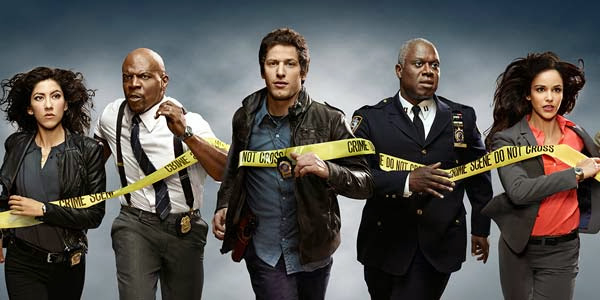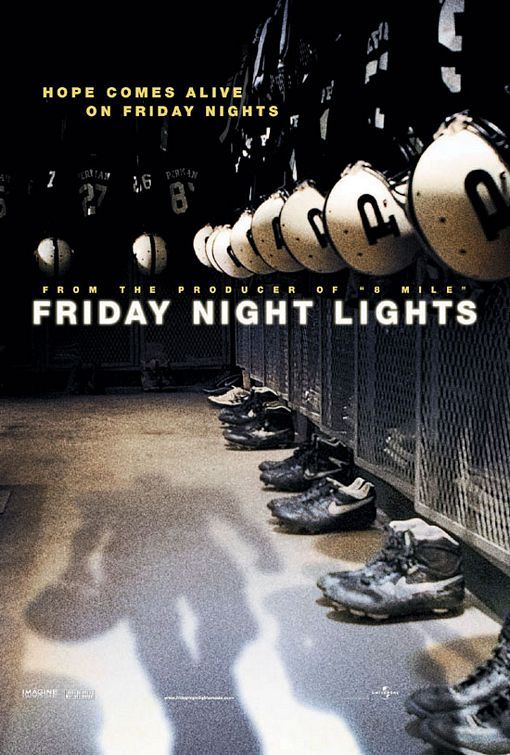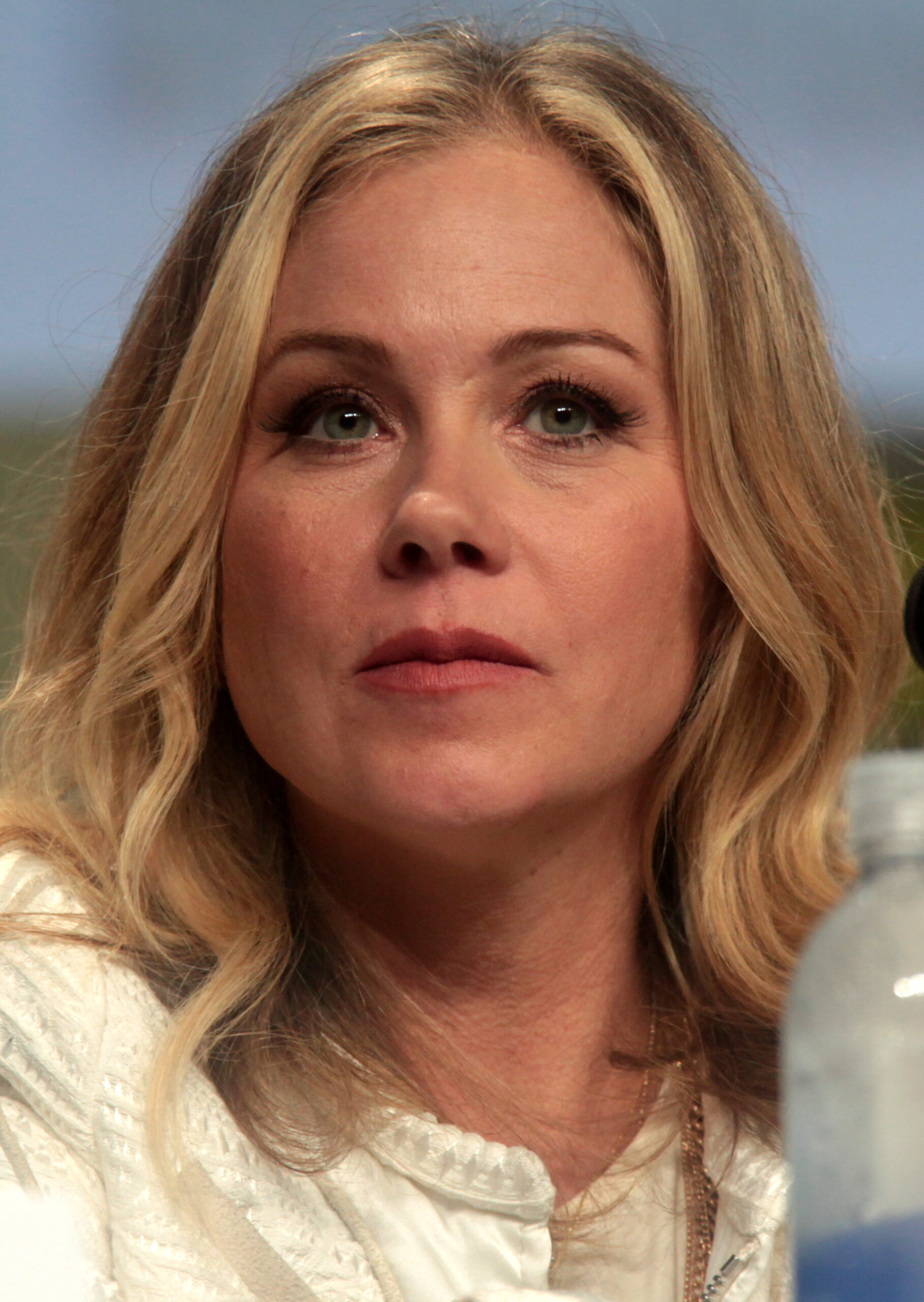
Television can truly be a fickle mistress, a landscape where even the most promising narratives can be unceremoniously cut short, leaving loyal viewers in a lurch. Just when you’re getting deeply invested in a story, the powers that be often step in, delivering that dreaded cancellation notice. It’s a common tale in the industry, and it often feels like a cruel twist of fate for shows that feel like they have so much more to offer.
However, in an exciting turn of events that gives fans reason to hope, the modern era of television has proven that a show is rarely truly “beyond salvation until all of its actors are dead.” The pathways to resurrection are more varied and accessible than ever before. Whether it’s a rival network swooping in, the overwhelming roar of a dedicated fanbase, or even network executives simply having a change of heart, more series than you might realize have been dramatically brought back from the brink of annihilation.
Sometimes, these renewals are a mere stay of execution, granting one final season before the curtains close for good. But in other, truly magical instances, they rescue a program that, with a few extra years to connect with audiences, blossoms into a bona fide classic. Today, we’re taking a deep dive into 15 of the most notable shows that were saved from the axe, proving that hope for our favorite series is never truly lost.

1. **A.P. Bio**When “A.P. Bio” first premiered, it introduced us to Jack Griffin, a philosophy professor from Harvard who finds himself stripped of his tenure and begrudgingly back in his Ohio hometown, teaching A.P. Biology at his former high school. Played by Glenn Howerton, who perfected the sociopathic charm on “It’s Always Sunny in Philadelphia,” Jack brought a similar energy to this new role, though with a different set of ambitions: he had absolutely no intention of teaching biology. Instead, his goal was to leverage his students’ collective intellect to plot revenge against a rival professor he believed was responsible for his downfall.
Initially, “A.P. Bio” took a little while to find its distinct voice and rhythm. The writers eventually realized the comedic gold wasn’t solely in Howerton’s performance, but also in the delightfully weird and diverse crew of students in Jack’s class. Once this shift occurred, the show truly blossomed, evolving into one of the most bizarrely endearing and genuinely funny series on television, a unique blend of dark humor and unexpected heart that resonated with a growing, dedicated audience.
Despite its creative improvements and burgeoning cult following, the show’s ratings on NBC didn’t quite reflect its critical appreciation or fan enthusiasm. After two seasons, the network made the difficult decision to cancel “A.P. Bio.” However, in a relatively swift and surprising turnaround, NBC rolled back the cancellation just two months later, opting instead to relocate the show to their then-nascent Peacock streaming service. This move allowed “A.P. Bio” to thrive in a new digital home, ultimately lasting for two more successful seasons, a testament to its unique appeal and a savvy network decision.
Read more about: Beyond the Limelight: 14 Outspoken Atheists in Hollywood and Entertainment Who Are Changing the Conversation

2. **Baywatch**”Baywatch” stands as an undeniable cultural touchstone of the ’90s. The iconic imagery of beautiful lifeguards, clad in their signature red bathing suits, running along the sun-drenched beaches, instantly conjures a specific nostalgic vibe. David Hasselhoff, through his role on the show, cultivated a celebrity status so immense it saw him making a memorable appearance at the fall of the Berlin Wall – a truly wild historical coincidence, as that event happened in the very same year “Baywatch” premiered. Even those who’ve never watched an episode inherently grasp the show’s massive, enduring aesthetic and impact.
Given its gargantuan global footprint and pop culture ubiquity, it comes as a genuine shock to learn that this massive cultural phenomenon almost never came to be. In fact, “Baywatch” was initially and unceremoniously cancelled by NBC after just a single season. The network simply didn’t see the potential, and it seemed like the red swimsuits were destined for storage, with the dream of sun, surf, and slow-motion running fading away.
But David Hasselhoff, along with the show’s producers, harbored an unwavering belief in its concept and potential. They weren’t willing to let it sink without a fight. In an extraordinary act of dedication and financial risk, they famously used their “personal piggy banks to keep ‘Baywatch’ alive by striking a direct syndication deal.” This audacious move completely reversed the show’s fortunes, granting it a second, improbable chance to captivate audiences. After this incredible act of “television CPR,” “Baywatch” went on to air for an astonishing additional ten seasons, wrapping up with dignity in 2001 and securing its legendary status.
Read more about: 15 Red Carpet Moments So Awkward, You’ll Cringe Your Way Back To The Couch

3. **Roswell**What could possibly be more engaging than aliens? Perhaps, teen aliens desperately navigating the complexities of adolescence while trying to blend in, all while living in the highly appropriate, yet incredibly precarious, town of Roswell, New Mexico. “Roswell” captivated audiences with its premise revolving around a group of extraterrestrial beings who crash-landed on Earth as children and were subsequently adopted by human families. Their primary challenge? To meticulously guard their true identities and formidable powers, for reasons that were, quite frankly, obvious.
Their secret existence, however, became significantly more complicated when Max, one of the aliens, used his powers to save the life of his classmate, Liz. This single act inadvertently exposed him and his compatriots to intense scrutiny as Liz began to uncover the truth about their origins. The series brilliantly wove together themes of forbidden romance, coming-of-age drama, and sci-fi mystery, quickly building a passionate following among fans who adored its unique blend.
“Roswell” aired for two seasons on The WB, consistently battling the threat of cancellation at every turn, a common plight for shows pushing creative boundaries. Its dedicated fanbase famously rallied to its defense, sending in countless bottles of Tabasco sauce – a favorite condiment of the alien characters – in a desperate, heartfelt bid to keep their beloved show on the air. After those two seasons, The WB ultimately decided to wash their hands of the sci-fi teen drama. Yet, in a triumphant move, UPN stepped in, orchestrating a deal to pick up not just “Roswell,” but also The WB’s “Buffy the Vampire Slayer.” “Roswell” lasted just one additional season on its new home at UPN, but its enduring appeal led to a successful reboot in 2019, aptly titled “Roswell, New Mexico.”
Read more about: Toumani Diabaté, Malian Master of the Kora, Who Transcended Borders and Carried a Rich West African Legacy to the World, Dies at 58

4. **Community**”Community” epitomizes the kind of ensemble comedy that truly blossoms once its writers fully grasp the intricate dynamics and unique quirks of each character. While it initially centered almost exclusively on the sardonic perspective of Jeff Winger, a smarmy lawyer forced to attend community college after his degree was invalidated, the show rapidly shifted its focus. It wisely began to take full advantage of the wonderfully oddball misfits who comprised his Spanish study group, recognizing that the true magic lay in their collective interactions.
As the series progressed, while Jeff’s character remained a pivotal element, “Community” evolved into a much more expansive and character-driven ensemble piece. This shift allowed talented up-and-comers to build out beloved, distinct personalities, from Abed’s meta-commentary to Troy’s childlike wonder, Annie’s ambitious drive, and Britta’s well-meaning but often misguided activism. This creative evolution cemented its status as a critical darling and a cult phenomenon, adored for its inventive storytelling and genre-bending episodes.
Despite its critical acclaim and passionate fanbase, “Community” famously flirted with cancellation throughout the majority of its run. It endured five tumultuous seasons on NBC, marked by several bouts of behind-the-scenes drama, including showrunner Dan Harmon’s temporary departure and actor Chevy Chase’s controversial exit. However, in a truly eleventh-hour save, “Community” was rescued by Yahoo! Screen, a now-defunct streaming service that offered it a sixth season. Fans are still holding out hope for the long-teased “Community” film, which, given the show’s history, might just materialize when least expected.
Read more about: Navigating the Exactech Medical Alert: A Consumer Guide to Defective Joint Implants, Recalls, and Your Legal Rights

5. **Brooklyn Nine-Nine**”Brooklyn Nine-Nine” masterfully applied the beloved quirky workplace comedy formula to the world of law enforcement, much like how “Parks and Recreation” brought humor to local politics. Centered around a merry band of police officers operating out of a fictional department in Brooklyn, the show quickly endeared itself to viewers with its diverse, hilarious cast and its often dramatic range in competency. The series was a refreshing take on the police procedural, prioritizing character-driven comedy, heartfelt relationships, and genuine laughs over gritty realism.
So, when Fox made the shocking decision to cancel the critically acclaimed series after five seasons, the news sent a ripple of disbelief and outrage through its dedicated fanbase and the wider television community. The outcry was immediate and immense. However, within a mere 30 hours of the initial cancellation announcement, “Brooklyn Nine-Nine” found a new and eager home on NBC, a truly remarkable display of network interest and belief in a show’s worth.
Robert Greenblatt, a key executive at NBC, articulated the network’s enthusiasm in a press statement (via Variety), explaining, “Ever since we sold this show to Fox I’ve regretted letting it get away, and it’s high time it came back to its rightful home.” This sentiment perfectly captured the excitement of both the network and fans, seeing the show return to the network that originally developed it. On NBC, “Brooklyn Nine-Nine” continued its impressive run for an additional three seasons, ultimately going off into the sunset secure in its legacy as one of the best and most beloved sitcoms of the 2010s.
Read more about: Kimberly Hébert Gregory, Acclaimed Actress of ‘Vice Principals’ and Champion of Representation, Dies at 52: A Retrospective

6. **The Killing**Based on a popular Danish crime drama, AMC’s “The Killing” drew viewers into its rain-drenched, atmospheric world, starring Joel Kinnaman and Mireille Enos as a pair of detectives investigating the brutal murder of local teenager Rosie Larson. What began as a seemingly straightforward case unfolded into a complex, sprawling hunt that meticulously stretched over the course of the entire first two seasons of the show. The series was praised for its intense mood, compelling performances, and intricate plotting, keeping audiences guessing with every twist and turn.
Things with “The Killing” ran swimmingly during those initial two seasons, as the central mystery of Rosie Larson’s death provided a powerful narrative backbone. However, once that highly anticipated mystery was finally resolved at the end of Season 2, questions began to emerge about the show’s future direction. In July 2012, AMC made the decision to cancel the series, though they prudently kept the door open, signaling their willingness to shop it around to other networks, recognizing its critical acclaim and dedicated, if niche, audience.
Ultimately, in a surprising turn, AMC ended up striking a deal with both Fox and Netflix to bring “The Killing” back for a third season, demonstrating its continued appeal across different platforms. After this reprieve, it was cancelled by AMC once again, seemingly for good. But the show proved incredibly resilient, with Netflix stepping in as the sole rescuer, “offering the show a fourth and final series on their streaming platform.” This allowed the narrative to reach a proper conclusion, cementing “The Killing’s” unusual distinction of being canceled a remarkable three times, only to be revived each time.
Read more about: 14 Profound Truths from Toni Morrison’s Beloved That Will Stay With You Long After the Last Page

7. **Family Guy**”Family Guy” burst onto the Fox animation lineup in 1999, quickly establishing itself with its irreverent humor and satirical take on the traditional sitcom trope of a boorish, often clueless husband married to an inexplicably attractive, intelligent, and remarkably put-together wife. The show revolves around the Griffin family, a wonderfully dysfunctional unit frequently thrown into chaotic and outlandish situations by the antics of Peter, its bombastic, ersatz patriarch. While Peter often takes center stage, the rest of the family – Lois, Meg, Chris, Stewie, and Brian – are certainly not exempt from their own bouts of ridiculous and often bizarre behavior.
Despite its immediate, albeit controversial, impact and its unique brand of humor, “Family Guy” initially lasted for only three seasons on Fox before the network cancelled it in 2003. This decision felt premature to its burgeoning fanbase, who adored its rapid-fire jokes, pop culture references, and musical numbers. For a time, it seemed like the Griffin family’s story had come to an abrupt and unsatisfying end, joining the ranks of many animated shows that couldn’t quite find consistent footing.
However, something truly unusual and groundbreaking happened next: when the first three seasons of “Family Guy” were released on DVD, the sales figures were astronomically high. This unexpected commercial success, fueled by passionate fans who were not ready to let go, forced the network to reconsider its decision. In 2004, prompted by these unprecedented DVD sales, Fox reversed course and brought the show back on the air. Since its remarkable return, “Family Guy” has not only become a cornerstone of adult animation, running strong for an astonishing 23 seasons, but with the April 2025 announcement of its renewal for four additional seasons, it doesn’t seem like the Griffin family will be going anywhere anytime soon, proving the immense power of home video sales and fan dedication.” , “_words_section1”: “1948
Having explored some truly remarkable comebacks, we now turn our attention to more beloved series that were snatched from the jaws of cancellation, proving once again that in television, hope often springs eternal. These shows not only found new life but also carved out lasting legacies, demonstrating the power of dedicated fanbases, strategic network moves, and the evolving landscape of content distribution. Their journeys back to the screen are as compelling as the narratives they present.
Read more about: Investing in Excellence: A Wirecutter Guide to the 7 Best High-End Grills for Unparalleled Outdoor Cooking

8. **Sanditon**Based on an unfinished draft by the incomparable Jane Austen, “Sanditon” arrived with a literary pedigree that, by all accounts, should have guaranteed its on-screen success. The series chronicled the adventures of Charlotte Heywood as she navigated the vibrant, often chaotic, social scene of the burgeoning seaside resort town of Sanditon. However, the very nature of its source material – an incomplete novel – presented a unique challenge for its adaptors, as they grappled with charting a narrative course beyond Austen’s original vision.
Indeed, the show quickly encountered significant setbacks. Its initial run was prematurely cut short, as ITV in the U.K. made the decision to cancel “Sanditon” even before it had a chance to air on PBS in the U.S. This unexpected move left a passionate, albeit nascent, fanbase yearning for more of Charlotte’s story and the intricate web of relationships within the titular town, creating a void that seemed unlikely to be filled.
Yet, in a testament to its charm and the enduring appeal of Austen’s world, “Sanditon” was eventually granted a miraculous second chance. Two years after its initial season, the announcement came that it would be returning for both a second and a third season, a truly triumphant reversal. This revival, however, came with its own set of challenges, as several original cast members, including Charlotte’s primary love interest played by Theo James, were unavailable to return, having moved on to other projects. Despite these hurdles, “Sanditon” managed to complete its three-season arc, a commendable achievement for a story that began life as an unfinished manuscript, and one that ultimately satisfied its eager audience.
Read more about: Dive In! 12 Beach-Ready TV Shows You Absolutely MUST Binge This Summer

9. **Futurama**Much like its protagonist, Fry, who inadvertently fast-forwards a thousand years into the future, “Futurama” has proven to be incredibly resilient, enduring far beyond its initial expected lifespan on television. The brainchild of “The Simpsons” creator Matt Groening, the animated sci-fi comedy follows Fry, a pizza delivery boy from the turn of the 21st century, who wakes up in the year 3000. With no clear path back to his original time, he adapts to his new, bizarre circumstances, taking up a new job as an interplanetary delivery boy for Planet Express, surrounded by a quirky crew of aliens, robots, and cyclopes.
Fox hosted the first four seasons of “Futurama,” where it garnered a dedicated cult following for its sharp humor, intelligent sci-fi concepts, and surprisingly heartfelt moments. However, despite its critical acclaim, Fox ultimately decided to cancel the series. Yet, the show found a new lease on life through syndication, where reruns continued to draw in new viewers and solidify its enduring appeal.
Recognizing this sustained popularity, Comedy Central stepped in and revived “Futurama” in 2009, commissioning an additional three seasons. This run further expanded the show’s universe and delighted fans who thought they had said their final goodbyes to the Planet Express crew. When its time on Comedy Central eventually concluded, it once again appeared to be the end of the line for the beloved animated series.
But as any “Futurama” fan knows, you simply can’t keep a good show down. In 2023, the ever-expanding streaming giant Hulu came to the rescue, bringing the show back for a second revival, airing two additional seasons. Given its remarkable history of resurrections across different networks and platforms, it wouldn’t be surprising if “Futurama” continues to periodically return, perhaps even until the actual year 2999, embodying its own timeless, futuristic narrative.
Read more about: The Most Tragic TV Show Endings That Still Feel Unfair: Our Hearts Are Still Broken (and Probably Always Will Be!)

10. **Jericho**”Jericho” offered a gripping premise, plunging viewers into the immediate aftermath of a nuclear war within the seemingly tranquil confines of Jericho, Kansas. The series explored how a small, isolated community coped with a world abruptly stripped of its modern comforts and communication. At the narrative’s core was Jake Green, the town mayor’s prodigal son, who had only recently returned home when a series of catastrophic nuclear explosions reshaped the United States, forcing him to step up as a vital leader and voice of reason within the beleaguered community.
Despite its intriguing and timely premise, “Jericho” unfortunately struggled to secure consistent viewership on CBS. After airing just one season, the network made the difficult decision to cancel the show. This news was a heavy blow to the series’ burgeoning and incredibly passionate fanbase, who had quickly become invested in the fates of the citizens of Jericho and the larger mystery of the post-apocalyptic world.
What followed was one of the most legendary and effective fan campaigns in television history. Dedicated viewers, affectionately dubbed the “nuts” after a pivotal scene in the first season finale, inundated CBS headquarters with actual peanuts. This extraordinary demonstration of loyalty and demand for their beloved series caught the network’s attention, proving that a vocal and organized fanbase could indeed make a tangible difference.
Moved by this unprecedented outpouring, CBS made the rare decision to grant “Jericho” a reprieve, ordering a special 10-episode second season. While this gave fans a chance to see more of the story unfold, it was ultimately a temporary victory, as the network decided to cancel the show again after its shortened second run. Nevertheless, the “nuts” campaign remains a powerful example of fan activism and the potential for audiences to influence network decisions, even if only for a brief, glorious moment.
Read more about: Seven: The Number That’s Everywhere – From Ancient Mysteries to Viral TikToks!

11. **Lucifer**”Lucifer” quickly distinguished itself as a uniquely charming supernatural drama, centered around the charismatic Tom Ellis as Lucifer Morningstar himself. Tired of ruling Hell, the fallen angel abdicates his throne to open an upscale nightclub in Los Angeles. His devilish fun takes an unexpected turn when he finds himself drawn into a murder investigation, crossing paths with the intriguing Detective Chloe Decker. What makes Chloe so captivating to Lucifer is her inexplicable immunity to his powerful persuasive abilities, setting the stage for a compelling blend of supernatural romance and police procedural.
The series enjoyed a devoted following throughout its initial three-season run on Fox, captivating audiences with its witty dialogue, intricate cases, and the undeniable chemistry between its leads. However, despite a growing fanbase, Fox made the controversial decision to cancel “Lucifer” in 2018. This cancellation came as a particularly harsh blow, as the third season finale ended on a dramatic cliffhanger, leaving viewers desperate for resolution.
True to the show’s theme, you simply can’t keep a good devil down, and “Lucifer” fans quickly rallied. A massive online campaign, fueled by the hashtag #SaveLucifer, erupted across social media, demonstrating the show’s widespread global appeal. This powerful fan outcry ultimately reached the ears of Netflix, which swooped in to rescue the series, ordering a fourth season and providing a new home for the celestial detective and his human partner.
Under Netflix’s wing, “Lucifer” continued to thrive, running for an additional three seasons. Initially, Netflix had signaled that the fifth season would be its last, preparing fans for a definitive conclusion. However, the show’s continued exceptional performance and immense popularity on the streaming platform led to a surprising reversal of that decision, with Netflix greenlighting a sixth and truly final season. This final reprieve allowed the narrative to reach a satisfying and well-earned conclusion, cementing “Lucifer’s” legacy as a show saved by the sheer devotion of its fans and the flexibility of the streaming era.
Read more about: Katy Perry’s Empire: An Investopedia Analysis of a Pop Icon’s Strategic Ascent and Enduring Financial Success

12. **Scrubs**In a television landscape often dominated by intense medical procedurals, “Scrubs” offered a refreshing and uproariously funny alternative. The series took a comedic, often surreal, approach to the lives of doctors-in-training at the bustling Sacred Heart Hospital. Starring Zach Braff as the perpetually daydreaming J.D. and Donald Faison as his best friend and shockingly codependent bromance partner, Turk, the show followed their journey from wide-eyed interns to seasoned physicians, charting their laughter, tears, love, and professional growth.
To be entirely fair, “Scrubs” had a long and celebrated run on NBC, and by the time its seventh season concluded, many fans and critics felt that the show had, perhaps, run its natural course. It was arguably past its prime, and the thought of its cancellation by NBC didn’t come as a complete shock to everyone, suggesting that it might have nowhere to go but down in terms of creative output.
However, the beloved medical comedy was granted a surprising opportunity for a graceful exit. It moved over to ABC for what was explicitly intended to be its eighth and final season, allowing the writers to craft a more satisfying conclusion for its dedicated audience. But in an unexpected twist, ABC then decided to renew it for a ninth season, a decision that drastically altered the show’s dynamic.
This ninth season, subtitled “Scrubs: Med School,” saw a significant shift in focus, with a largely new cast of medical students taking center stage. Only Donald Faison (Turk) and John C. McGinley (Dr. Cox) returned as full-time cast members, with Braff making only guest appearances. This dramatic overhaul, moving from the hospital’s day-to-day chaos to a med school classroom, was met with mixed reactions, but it undeniably extended the life of a show that had already defied its initial farewell.
Read more about: Sandra Bullock’s Ageless Radiance: Unveiling the Skincare Secrets That Keep Her Forever Young

13. **Friday Night Lights**”Friday Night Lights” captured the heartland spirit of a Texas high school football team, portraying not just the triumphs and tribulations on the field, but also the deep personal dramas of the players and the unwavering support of their community. At the core of the series was the steadfast Coach Eric Taylor, played by Kyle Chandler, whose dedication to his team and his family anchored the show’s emotional depth. It was a series that resonated deeply with audiences for its realistic portrayal of small-town life, ambition, and adversity.
However, the path for “Friday Night Lights” was far from smooth, echoing the underdog nature of its fictional football team. The second season, in particular, suffered significantly from the 2007-2008 Writers’ Strike, which led to a shortened episode run. This abrupt truncation resulted in a confusing and incomplete narrative arc that left viewers disoriented, with the beginning of the third season even needing to explain events that were supposed to have unfolded on screen in those missing episodes. These production woes severely impacted its broadcast performance.
By the time the third season was being considered, NBC had serious plans to cancel the critically acclaimed drama. It seemed that the show’s fate was sealed, destined to join the ranks of many other quality series cut short. Yet, in a creative and pivotal move, NBC brokered a groundbreaking co-production deal with DirecTV. This innovative arrangement allowed the series to continue for an additional three seasons, from its third through its fifth.
Under this unique model, new episodes would first be broadcast on DirecTV’s The 101 Network, offering subscribers early access, before being reshown on NBC several months later. This collaborative approach not only saved “Friday Night Lights” from an untimely end but also allowed it to reach its intended narrative conclusion, securing its legacy as one of television’s most highly regarded dramas, a testament to flexible thinking in a challenging broadcast environment.
Read more about: Why Austin, Texas is the New A-List Haven: A Deep Dive into Celebrity Homes and Lifestyles

14. **S.W.A.T.**The reboot of the classic ’70s cop drama, “S.W.A.T.,” quickly established its own identity, focusing on an elite S.W.A.T. team operating out of the Los Angeles Police Department, led by the formidable Daniel “Hondo” Harrelson, played by Shemar Moore. Like many police procedurals, it found a consistent audience and enjoyed a relatively stable run, being renewed year after year without much fanfare for its first several seasons, building a solid base of viewers who appreciated its action and character-driven stories.
However, despite its steady performance and even a handful of Emmy nominations, the news broke that “S.W.A.T.” was cancelled following its sixth season. This decision sent shockwaves through its fanbase, many of whom had come to rely on the show for their weekly dose of thrilling police action and compelling character arcs. The cancellation felt abrupt and underserved, prompting an immediate and vocal reaction from loyal viewers.
In a truly remarkable turn of events, CBS reversed its decision just days after the initial cancellation announcement. In a press statement (via Deadline), the network acknowledged, “We have listened to our viewers and their outpouring of passion for ‘S.W.A.T.’ and we have reached an agreement to renew it for a final season of 13 episodes to air during the 2023-2024 broadcast year.” This swift walk-back highlighted the significant influence of fan dedication and the network’s willingness to respond to public sentiment.
But the story didn’t end there. After that ‘final’ seventh season, CBS once again surprised everyone by bringing the show back for an eighth go-around, effectively eating their own words about its conclusion. While the context states that the show’s number was ultimately up, with “S.W.A.T.” concluding in 2025, its journey through multiple cancellations and subsequent revivals stands as a compelling example of a show that simply refused to die, demonstrating an extraordinary resilience driven by its appreciative audience.
Read more about: Beyond the Buzz: Unpacking the Incredible Careers of 10 Actresses Redefining Hollywood Today

15. **Southland**”Southland” offered a gritty, authentic portrayal of police work, diverging from the typical crime-of-the-week procedural to instead focus intensely on the personal and professional lives of officers within the Los Angeles Police Department. The series starred Ben McKenzie as rookie officer Ben Sherman and Michael Cudlitz as his seasoned, often cynical, training officer, John Cooper. It delved deep into the psychological toll and moral complexities faced by those on the front lines, earning critical acclaim for its raw realism.
The show debuted on NBC, where it received generally positive reviews for its unflinching approach and strong performances. However, its initial run was plagued by uncertainty. First, NBC inexplicably pushed back the premiere of its second season, a move often interpreted as a bad omen for a show’s future. Then, just two weeks before the delayed second season was scheduled to air in October 2009, the network officially announced its cancellation, leaving fans and critics bewildered.
Fortunately, “Southland’s” critical praise and dedicated following did not go unnoticed. Just a month after its unceremonious axing by NBC, TNT stepped in to rescue the police drama, acquiring the rights to air the second season that had already been fully produced. This move was a lifeline for the series, allowing its compelling narrative to continue and reach a wider audience on cable television, where it was arguably a better fit for its darker tone.
While TNT renewed “Southland” for a third and later a fourth season, ensuring its survival for several more years, this rescue came with a significant catch. The series faced massive budget cuts, which unfortunately led to the loss of several characters. This reduction in the ensemble cast altered the show’s original dynamic, which had been praised for its deep exploration of multiple interconnected lives. Despite these creative compromises, “Southland” cemented its reputation as a groundbreaking and respected police drama, proving that even a show beset by network turbulence can find a second life.
Read more about: Beyond the Face Value: Unpacking The Rings of Power Recasts and the Profound Meanings of ‘Lord’ in and out of Middle-earth
These remarkable stories of cancellation and triumphant return serve as a powerful reminder of the ever-evolving nature of television. From passionate fan campaigns moving mountains of peanuts to savvy network executives correcting past mistakes, and the transformative power of streaming services, the journey of these shows underscores a vital truth: in the world of entertainment, the final curtain is sometimes just the beginning of a whole new act. The enduring spirit of these series, and the dedication of their creators and fans, truly stand as a testament to the fact that great storytelling, once believed to be lost, can indeed find its way back home, sometimes even stronger than before.




